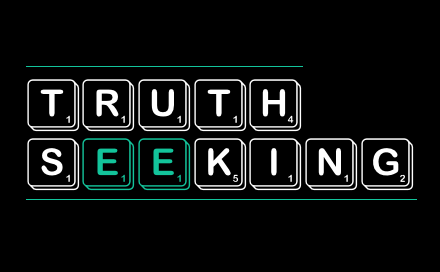A few weeks back I said I was going to get my product in front of customers and put myself in the vulnerable position of asking for feedback. I still don’t have the actual software product (don’t ask) but I have now been testing the offline method with a bunch of clients, some paying, some not. And I’ve asked the immortal question: “What do you think?”
A few times at bp I worked on something on my own, and I remember the anxiety as it was unveiled. But I could rely on good judgment, a solid understanding of the customer and a lot of natural paranoia that helped me predict every possible complaint in advance. Most of what I worked on however, was picked and prodded at so many times, I rarely felt much ownership (or personal risk) when sharing.
So this is a new feeling.
But I’ve learnt a lot so far just by listening hard to what founders and others have said - and mostly not said.
Asking “What do you think?” however, is leaving yourself open to a good kicking. And it could well hurt.
Even if done nicely.
As it was for me last week. With lots of roundabout questions “Why is it like that?” “Isn’t there a different way to do that?” “Could we do that bit faster?” – and the worst “Could we do that on our own outside of Familiarize?”
As the feedback sank in, my Heart began to hurt. But within minutes my Head was grateful.
Unfortunately, the Heart was inconsolable and much louder than the more measured Head.
But by morning the Head was in charge and I was incredibly grateful to this person (who may well be reading).
I’ve always scoffed at “Feedback is a gift”. But I think for the first time I thought “This person wants me to get better and they care enough to take on the awkwardness of feedback to help me get better.” That is a game-changer in how to see feedback. I don’t think I felt that in corporate life because I often felt feedback had an agenda, fuelled by politics or ego.
Here both were totally absent, so I listened harder.
And in fact I took a forensic approach to the feedback – picking it apart line by line and analysing what might lie behind each point, how did it make the customer feel, why was that important and what could I do to help.
For instance, one illuminating bit of feedback lay in the line: “What’s the end-state? What could we show an investor?”
Immediately, I saw I’d got so focused on solving the Founder’s problem of understanding the customer, I had forgotten to think why that’s a problem: because they need to prove they understand their customer and have traction if they want to raise funds from an investor.
I had failed to understand the customer; something I claim to be good at!
Here are some tips to see feedback as a gift:
You have to prostrate yourself to the God of customer feedback at some time. It might as well be now. Talk to friendly customers first – but you will need to push them to say anything other than nice things.
Watch out for ego in feedback. I had a call this week where Familiarize was challenged and afterwards, I realised that, amongst some good stuff, there was actually a lot of showboating.
Another call this week introduced me to the “worldview” concept – where could your business be in five years? Think ambitiously like I did last week. Then use your worldview as a filter for feedback. For instance, I got feedback essentially saying “build a database that automatically generates customer profiles by who signs up (to spam)”. It’s just not the kind of business I want to build. So the feedback is interesting but not relevant to my worldview for Familiarize.
Think why this person is sharing the feedback – like my end-state example above. When you get a request for a feature or hear a complaint think (or ideally ask) why that’s important – that may be more revealing than the original feedback.
Feedback is theory unless it’s validated. Just like I tell my clients – before you change anything based on feedback, you need to test it. Make sure you’re not building products with a market of one. A call with another client where I tested out some feedback revealed they didn’t think the same way – so who’s right? More validation is needed to be sure before you invest time or money.
And if none of those work for you, listen to this from Brené Brown. It’s both hilarious and insightful.
My biggest problem is not really in seeking out feedback. It’s letting it spiral, leading to self-or startup sabotage. Fortunately I have a strong sense of purpose in Familiarize – and have never yet found a business that can describe its customer – so the spiralling doesn’t last long.
Do you have a love/hate relationship with feedback or are you all about getting to the truth as quickly as possible?








Some of my best feedback has come in the harshest forms from people who I know both disliked and/envied me in some way. It would have been far too easy to discredit them as “haters” or to undermine the credibility of their message by condemning their motivations. The issue was that they had nothing to loose by telling me exactly what they thought of me (and it was pretty savage but also pretty spot on in terms of what I needed to work on!). I know it is fashionable to dis “haters” and wrap oneself in a nice big blanket of self love and love of others but to be honest, that hard hitting no-sweetener added feedback was some of the best I have ever received. Saying that, probably a dish best eaten cold when wrapped in your love blanket xxxx